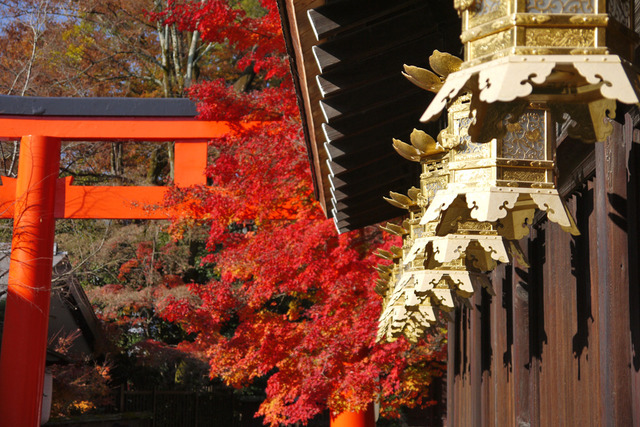Bitter Sweet Symphony by The Verve is one of the great songs on bittersweetness of life. This anthem, along with the symbolic music video, brings home to us the inevitable fate of death despite all of our longings.
The Verveの”Bitter Sweet Symphony”は、生きることの甘酸っぱさを歌った90年代のUKロックを代表する一曲ではないでしょうか。このアンセムは、様々な憧れがあるけれども、死という動かしがたい運命へ人は歩いてゆくということを、象徴的なミュージックビデオと共に伝えています。
We hope to follow a path we want, but quite often we have no choice but to follow the path we’ve ever been down because we always have certain constraints. Your employers, organizations, family members, your own physical, financial or social constraints wouldn’t allow you to choose to make a change. You feel all the more frustrated and powerless against circumstances.
違う生活や人生を誰しも望むものですが、諸々の制約があって、結局は今歩んでいる道を進み続けることしかないということがあります。諸々の制約とは、会社や組織の都合、家族の事情、自分自身が抱える身体的・経済的・社会的制約であったりするのですが、自分の置かれた状況を変えたいという願望があるだけに、一層の苦しみを抱えることになります。
L’irrationnel, la nostalgie humaine et l’absurde qui surgit de leur tête-à-tête, voilà les trois personnages du drame. Le mythe de Sisyphe by Albert Camus
非合理的なこと、人間的郷愁、この両者の対峙により生まれる不条理、これが人間存在という劇の三人の登場人物
The song contrasts our inevitable fate and our human longing. We have no choice but to walk toward “the places where all the veins meet” – death – because it’s ” the only road I’ve ever been down.” It’s inevitable truth. It’s beyond our control. It’s not a matter of your willpower. It leads you to get trapped and confined in a way that you feel “I am here in my mold.” But at the same time, the knowledge and experience you have acquired as you get old encourage you to believe in a possibility that “I’m a million different people from one day to the next.” We want to believe that it is our human intelligence and imagination that make it possible to understand human existence in terms of multifaceted composition and to see things from several points of view.
さて、この曲では、どうしようもない運命と人間的憧憬が対比されています。「自分が取りうる道がほかにない」ので、「全てが導かれゆく」死という終局へ向かって、人は歩んでいきます。それは、不可避の真実で変えようがない。自分では制御しようのない事柄。自分の意志では動かせないもの。こういったものによって「身動きが取れない」ように感じたりもします。しかし、歳を重ねる中で身に着けた知識や経験によって、「自分は何にだってなれる」可能性があると信じてもいます。人間としての知力と想像力で、人間の多面性を理解し、物事に多角的に向き合うことができるはずと思えるのです。
He walks on. It seems that he doesn’t do anything about avoiding obstacles on his way or changing his speed. Just as loss and separation, trouble and hardship, all comes out of the blue, fate is beyond our control. He just walks on while people raise their eyebrows, he knows he runs into trouble and he has no idea how to avoid it. Some of the stumbling blocks can be anticipated but that will not help us to avoid them. We just walk on.
彼は歩きます。自分から障害物を避けることもしない、スピードを速めることも緩めることもない。喪失や別離、混乱や困難は、不可避に訪れます。運命の導きは、自分の制御を越えているのです。他人からは眉をひそめられ、まずいことになるとわかっていながら、避けられないまま進む。予想される困難にも、自分にできることはないのです。ただ、あきらめて進むしかない。
Between his desire to be different and circumstances that tie him to the present situation, he feels trapped and decides to pray, saying “tonight I’m on my knees.” It’s not what he always does. He desperately needs some solace, someone who recognizes him. “But the airwaves are clean and there’s nobody singing to me now.” Fate doesn’t allow you to run away from tormenting truth. Then he walks on, occasionally bumping into obstacles, at a regular pace. Time passes precisely and mercilessly – 24 hours a day, 7 days a week, 365 days a year – till the end.
違うものになりたいという憧れと自分の置かれている境遇のはざまにある苦しみの中で、彼は祈ります。自分らしくない行いだと感じながら、しかし、救いや優しい言葉、認めてくれる誰かを求めるのです。しかし、「反応はなし」。苦しみを解消したいが、運命はそれを許してくれない。そして、彼は歩き続けます。時々障害にぶち当たりながら一定のスピードで進んでいく。24時間365日、無慈悲に正確に時は過ぎていく。いつか人生を終えるまで。
The Verve – Bitter Sweet Symphony
これが人生 甘酸っぱい ひとつの交響曲
毎日をあくせくと 金銭の奴隷となり 迎える終局
これが 自分の知る唯一の道だ さあ行こう
全てが導かれゆく その場所を 君は知っているだろう
無理だ 変えられっこない 無理 無理だ
がっちり 決められていて 身動きがとれないんだ
自分は何にだってなれるはずなんだ
でも 変えようがないんだ 無理 無理なんだ
祈るなんて自分らしくない でも今夜は跪こう
この苦しみと響きあう音に 耳を澄まそう
鳴り響くメロディー 空っぽの頭 これが自由
けれども 反応はなし 歌いかけてくれる人はなし








